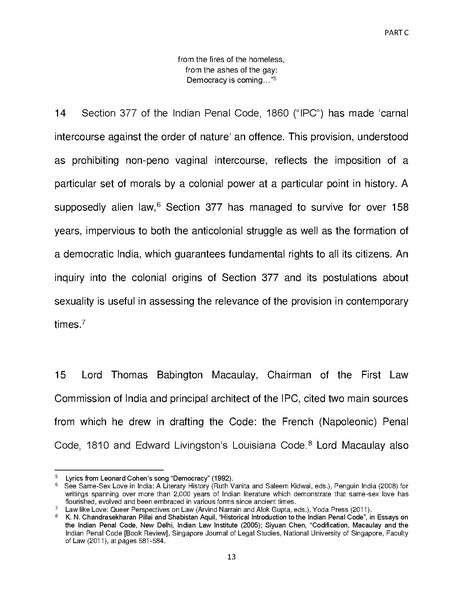Indian Penal Code 1860 Pdf
With specific reference to the Indian Penal Code, 1860 the paper. The article evaluates the positioning of fine as a punishment in the Indian Penal Code. Making preparation to commit dacoity is punishable in the Indian Penal Code 1860 under– (U.P.A.P.O.) (A) Section 393 (B) Section 395(C) Section 398 (D) Section 399. Pratiyogita Darpan January 2019 in Hindi PDF Free Download. Follow by Email Get all latest content delivered straight to your inbox. Categories Current GK 155.

The Indian Penal Code,1860 Citation Territorial extent (except the state of ) Enacted by Date enacted 6 October 1860 Date assented to 6 October 1860 Date commenced 1 January 1862 Committee report Amends see Related legislation Status: Amended The Indian Penal Code ( IPC) is the of India. It is a comprehensive code intended to cover all substantive aspects of.
The code was drafted in 1860 on the recommendations of first law commission of India established in 1834 under the under the Chairmanship of. It came into force in during the early period in 1862. However, it did not apply automatically in the, which had their own courts and until the 1940s. The Code has since been amended several times and is now supplemented by other criminal provisions. After the, the Indian Penal Code was inherited by its successor states, the and the, where it continues independently as the. The (RPC) applicable in is also based on this Code. After the separation of from Pakistan, the code.
Sajjan raazi lyrics in hindi. Song Details: Song: Sunn Raha Hai Movie: Starring: Aditya Roy Kapur, Shraddha Kapoor Singer: Ankit Tiwari, Shreya Ghoshal Music Director: Ankit Tiwari Lyrics: Sandeep Nath Music Label: T-Series 'Sun Raha Hai Na Tu Video - Female Ver.' 'Sunn Raha Hai Na Tu' song from the Bollywood's musical movie 'Aashiqui 2 (2013)', featuring Aditya Roy Kapur and Shraddha Kapoor. This beautiful song sung by Ankit Tiwari & Shreya Ghoshal, music composed by Ankit Tiwari, while lyrics are penned by Sandeep Nath.
Singing of national anthem. The Code was also adopted by the British colonial authorities in, (modern Sri Lanka), the (now part of Malaysia), and, and remains the basis of the criminal codes in those countries. Contents • • • • • • • • • • • • • • • • History [ ] The draft of the Indian Penal Code was prepared by the First Law Commission, chaired by in 1834 and was submitted to Governor-General of India Council in 1835. Its basis is the law of England freed from superfluities, technicalities and local peculiarities. Elements were also derived from the and from 's of 1825. The first final draft of the Indian Penal Code was submitted to the Governor-General of India in Council in 1837, but the draft was again revised.
Indian Penal Code 1860 In Hindi
The drafting was completed in 1850 and the Code was presented to the Legislative Council in 1856, but it did not take its place on the statute book of British India until a generation later, following the. The draft then underwent a very careful revision at the hands of, who later became the first Chief Justice of the, and the future of the Calcutta High Court, who were members of the Legislative Council, and was passed into law on 6 October 1860. The Code came into operation on 1 January 1862. Macaulay did not survive to see his masterpiece come into force, having died near the end of 1859 Objective [ ] The objective of this Act is to provide a general for India. Though not the initial objective, the Act does not repeal the penal laws which were in force at the time of coming into force in India.